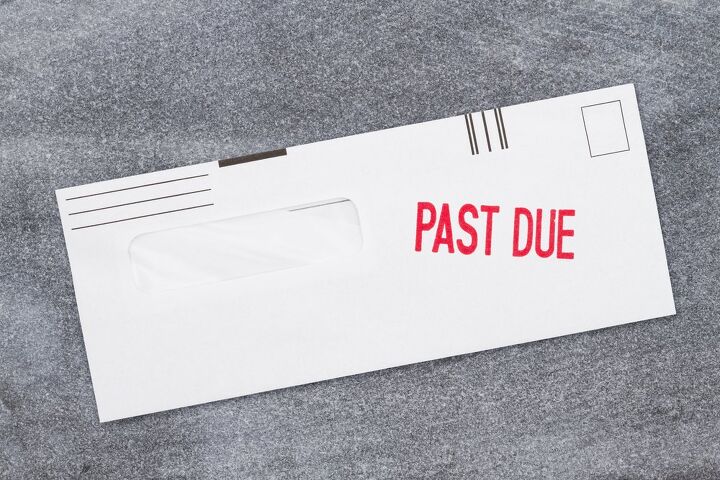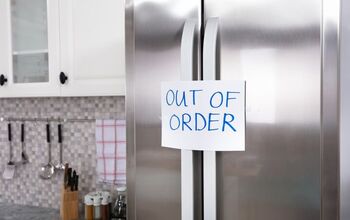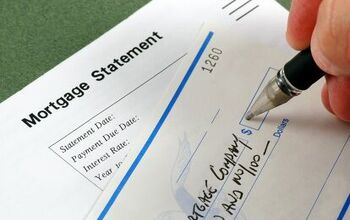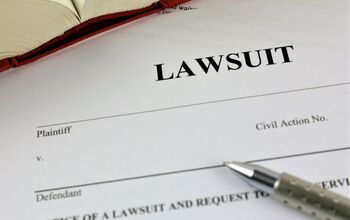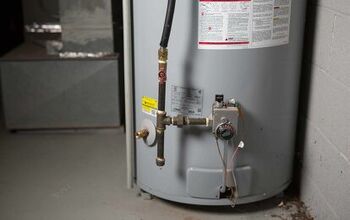Can I Sue My Landlord For Not Paying The Mortgage?

You’ve paid your rent on time every month, and you assumed that your landlord was paying the mortgage in turn. That is, until you received a notice from the bank that the house was being foreclosed! What are your rights in this situation, and can you sue your landlord for not paying the mortgage?
You can sue your landlord for breaching the lease if they didn’t pay the mortgage and the property was foreclosed. Another option is to sue for fraud if your landlord didn’t inform you of the foreclosure situation. You should be able to sue for your relocation costs and the difference in rent at your new home.
What Happens If Your Landlord Doesn’t Pay The Mortgage?
Unfortunately, if your landlord fails to pay the mortgage, the property can be foreclosed. This typically comes as an unwelcome surprise to tenants. In cases like these, landlords usually continue to collect rent, but don’t pay their mortgage.
As a result, the home is suddenly under a bank’s ownership, with tenants as the real victims of the foreclosure. They can face utility and water shut-offs and loss of their security deposit. They may even have to deal with unfair displacement from their homes.
Can You Sue Your Landlord If The Property Is Foreclosed?
It’s possible to sue your landlord for breaching the lease if the property is foreclosed. Another option is to sue your landlord for fraud.
The key is that you have to prove that your landlord didn’t disclose that the property would be foreclosed. This allows you to sue for monetary damages, like the cost of moving or any increased rent. But if your landlord hasn’t been paying the mortgage, they likely won’t be able to pay much in court, either.
In these cases, you’ll probably still have to move out of the rental unit. Although this isn’t ideal, it’s an unfortunate reality with this type of situation.
What You Should Know If The Property Is In Foreclosure
There are three main things to know if the rental property you’re living in is in foreclosure. First, your lease may be terminated; it depends on the laws of the state where you live.
Second, you’re obligated to continue paying rent as long as you stay in the property. This applies even if your landlord isn’t paying the mortgage.
Third, you do have leverage, even though you’re a tenant and not a property owner. This is because banks much prefer occupied properties to abandoned ones.
Is It Illegal For Landlords To Not Pay The Mortgage?
As crazy as it sounds, it’s actually not illegal for landlords to not pay the mortgage. Although it absolutely seems like it should be illegal, your landlord has no obligation to you to pay the mortgage. They’re allowed to spend your rent money as they please.
Of course, an exception to this is if the lease stated that the landlord had to pay the mortgage. It’s wise for tenants to request that this be added to new leases so they can avoid foreclosure situations.
Tenants must consider whether they’ve suffered any monetary damages as a result of their landlord not paying the mortgage. If so, the law will likely allow for compensation, and they can sue.
Suing can cover the cost of relocation. It can also cover the difference in rent if you had to move to a more expensive property. This difference can be covered up until the original lease was supposed to end.
Can You Continue Living In A House That Has Been Foreclosed?
It depends, but in a typical foreclosure, the landlord has six months after the sheriff’s sale to pay the mortgage. This is considered a redemption period. You can still live in the unit, and the landlord can continue to collect rent during this time.
Landlords can also ask to delay the sheriff’s sale for five months, which is called a postponement period. If the landlord pays the missed payments and catches up on the mortgage, then the sale can be canceled. You can continue living there during the postponement period, and the landlord can keep collecting rent.
However, there are consequences if your landlord doesn’t catch up on the mortgage before the new sheriff’s sale. The redemption period will be shortened from six months to five weeks.
Do Landlords Have To Tell New Tenants If A Property Is In Foreclosure?
If a landlord attempts to get a new tenant while in foreclosure, they must provide written notice. This notice must say that the property is in foreclosure or that the contract for the deed is being canceled. This must take place before the tenant signs the lease, pays rent, or provides a security deposit.
Typical Foreclosure Timeline
A typical foreclosure begins with the landlord missing several mortgage payments. At this point, they’ll receive a notice of default from the bank. The tenant is usually unaware that this is taking place.
After the notice of default is filed, the landlord has around 90 days to avoid foreclosure. They can do this by working with the lender. If they’re unable to work things out, the bank will record a notice of trustee sale.
This means that the property is going to be sold at a foreclosure auction. The tenant won’t be made aware of the situation (unless the landlord tells them) until 20 days before the sale. This is the point when the bank has to notify the tenant of the foreclosure.
If tenants suspect something is going on, they can contact the local county recorder’s office. Foreclosure documents are public records, so they will be able to figure out what is happening.
Warning Signs Of Foreclosure
There are warning signs that the unit you’re renting may be in foreclosure. First, the landlord may seem to disappear. Documents from the bank may begin to arrive at the property. A bank representative may even stop by in hopes of speaking with the property owner.
What To Do In A Foreclosure Situation
If you think (or know) that foreclosure is happening, there are a few things you should do.
Check Public Records
First, check public records to confirm your suspicions. Your landlord may say they’re paying the mortgage, but public records will reveal the truth.
Protect Your Security Deposit
It’s also important to take protective measures for your security deposit. Many defaulting landlords will simply keep the deposit.
However, when the property changes hands, the landlord is required to give it back to the tenant. Their other option is to transfer it to the property’s new owner. Inform your landlord that you need your deposit back, or you will sue.
Communicate With Your Landlord
It’s wise to let your landlord know that you’re aware of the foreclosure situation. This can force your landlord to make the right decision when it comes to paying the mortgage using your rent.
In some situations, pocketing the rent money without paying the mortgage can constitute rent skimming. This is a felony. However, it doesn’t always or even usually apply to this type of situation.
Offer A Rent Reduction
Another option is to offer your landlord a rent reduction. Basically, this means that you’ll reduce the rent to a certain amount for the remaining months of your lease. This reduced amount should cover your moving expenses and your security deposit.
The key is that you must get your landlord’s written confirmation of the new rental amount. Then, write on the front and back of each rent check, “New Rent Amount Per Agreement on (date). Lease valid until (end of lease date).” This provides you with additional protection.
Related Questions
Can I sue my landlord for mold?
Yes, mold issues are one reason for which tenants can sue their landlords. A lawsuit regarding mold is usually classified as a personal injury lawsuit.
Can I sue my landlord for negligence?
If illness or injury results from your landlord’s negligence, then yes, you can sue your landlord for negligence. However, you must be able to prove that any adverse effects directly resulted from your landlord being negligent.
Can I sue my landlord for harassment?
Yes, it’s possible to sue your landlord for harassment. One example of landlord harassment is withholding amenities; failing to make repairs is another. Sexual harassment, illegal rent increases, and entering the property illegally can all constitute harassment as well.
Related Guide

With a lifelong passion for writing plus strong enthusiasm for home improvement and DIY projects, joining the team at Upgraded Home was an easy choice. Jessica Allen likes to share helpful information with current and aspiring homeowners. Aside from writing, Jessica loves doing yoga, playing the piano, and dabbling in graphic design.
More by Jessica Allen



